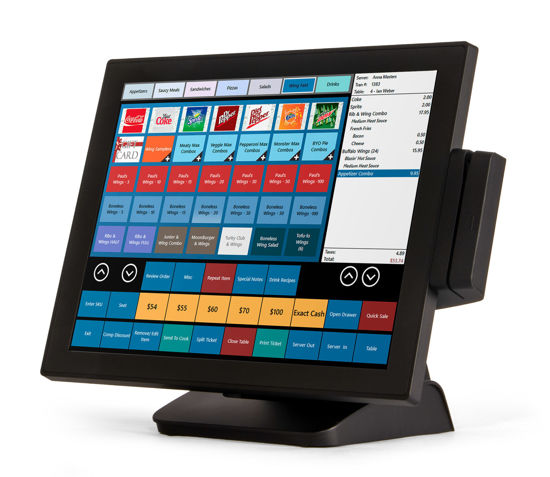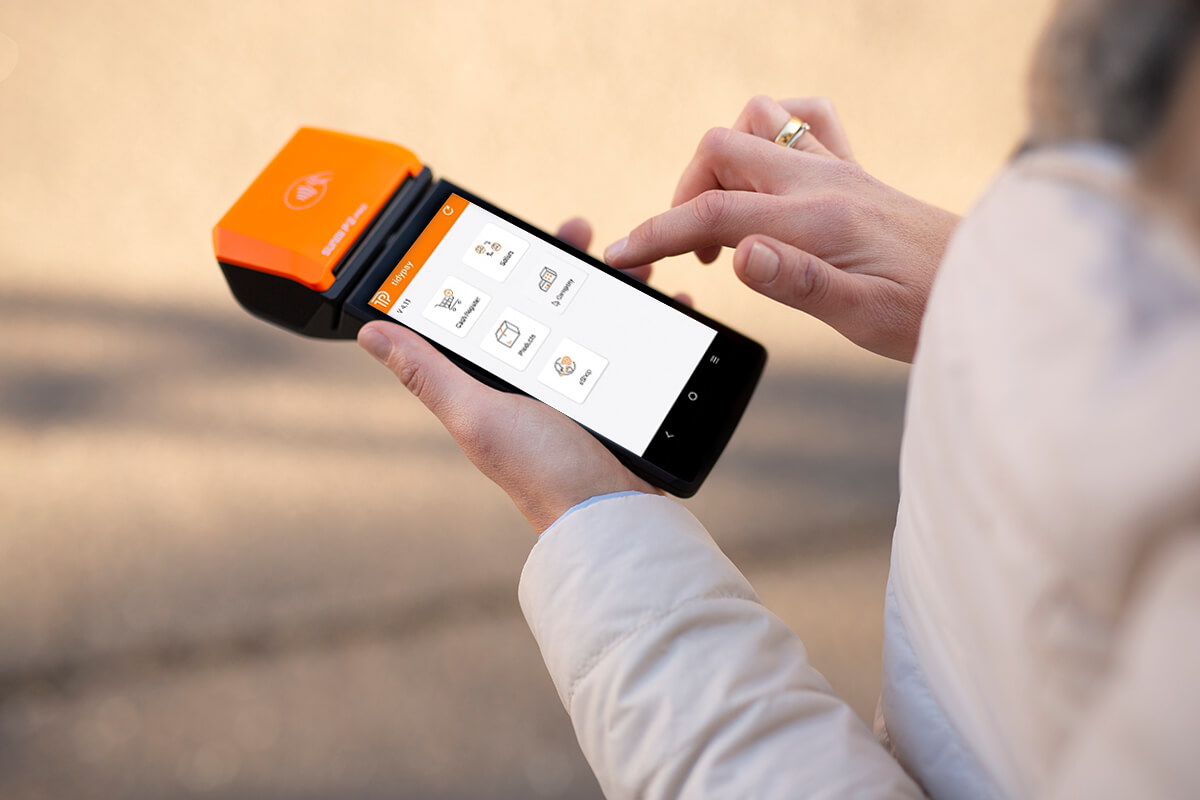Point Of Sale - Questions
Point Of Sale - Questions
Blog Article
Pos System For Small Business - Truths

Point of Sale: Retail Point-Of-Sale Solutions Streamline Deals
Some Known Factual Statements About Point Of Sale Software

Hardware Parts of a Point of Sale System What makes a POS system tick? It's not just software; the hardware plays a starring role. Think of it as the body to the software application's brain. Without the right hardware, even the most sophisticated POS software application is just a pretty face. Essential POS Hardware So, what are the must-haves? Let's break it down. The central processing system, frequently a computer system or tablet, is the heart of the operation. The screen or touchscreen show enables staff to engage with the system. A barcode scanner accelerate the checkout procedure. Remember the days of manually getting in each code? The trusty receipt printer supplies consumers with a record of their purchase. A cash drawer keeps your money safe and arranged. A card reader permits consumers to pay with credit or debit cards. Diving Deeper: Beyond the Basics But wait, there's more! Depending upon your service, you might require specific hardware. A restaurant might include kitchen area printers to relay orders, while a retail shop might use label printers for item tagging. Ever question how your local bakeshop immediately prints those delicious-looking labels? Picking the Right Hardware: A Balancing Act Choosing the best hardware isn't simply about buying the most pricey devices. It has to do with discovering the sweet area in between performance, resilience, and budget. A small company simply starting out here might choose a more standard setup, while a high-volume merchant will require robust, high-performance makers. Is it better to buy brand-new or utilized? Consider your choices thoroughly. A brand-new system offers the latest technology and warranty defense, however a refurbished system can save you cash. The Future of POS Hardware What does the future hold? Expect to see much more combination with mobile phones, biometric scanners for employee authentication, and advanced analytics dashboards displayed on bigger, clearer screens. Envision a world where stock is immediately upgraded in real-time as products are scanned-- a world where you can track your very popular item from throughout the world. The possibilities are endless, and the hardware is continuously developing to satisfy the needs these days's organizations. Are you all set to upgrade your point of sale system?
Software Application Features and Capabilities: The Heart of Your POS System
Ever enjoy an experienced barista slide through a hectic morning rush? Their secret isn't simply caffeine; it's a smooth dance with their POS system. The software is the conductor of your company symphony, managing everything from sales to stock. However what notes should you be listening for? What abilities genuinely matter in today's market?
Stock Management: Beyond Counting Beans
Forget spreadsheets that haunt your dreams. Modern POS systems use real-time inventory tracking, signaling you when your stock of artisanal coffee beans dips precariously low. Consider it as a digital guardian angel, preventing those uncomfortable "Sorry, we're out!" minutes to consumers. What if you could also anticipate need based upon historic information? Numerous systems now offer forecasting tools, an effective weapon versus overstocking and lost sales. This assists prevent the predicament of running out of popular items or accumulating excess stock of slow-moving products, both of which can constrain cash circulation and space.
Sales Reporting and Analytics: Deciphering the Data
Sales information is the new gold, and your POS system is the miner. Forget simply understanding how much you sold today. Dive deep into the data to discover trends, determine your best-selling items, and comprehend customer behavior. Which menu item sets completely with the day-to-day special? Which promotion resonated most with your customers? These insights are not just fascinating; they're actionable intelligence. Without reliable sales reporting, navigating the intricacies of company decision-making becomes like cruising without a compass, increasing the chance of mistakes and missed chances.
Consumer Relationship Management (CRM): Building Bridges, Not Walls
Keeping in mind a regular client's name and favorite order is captivating, but scaling that personal touch is difficult. POS systems with CRM abilities enable you to track customer purchase history, choices, and even birthdays. Envision instantly offering a discount on their birthday-- a small gesture that fosters loyalty and encourages repeat service. But there is the potential snag of poor information quality, which can result in unreliable consumer profiles and ineffective marketing efforts.
Payment Processing: Streamlining the Deal
The checkout experience can make or break a sale. Seamless integration with different payment approaches-- charge card, mobile wallets, even copyright-- is non-negotiable. Can your system manage split payments? Does it offer protected tokenization to protect consumer data? A cumbersome payment process resembles hitting a sour note in your organization symphony, possibly interrupting the entire efficiency. Guaranteeing compatibility with progressing payment technologies and adherence to security standards are vital for preserving client trust and operational efficiency.
Worker Management: Keeping the Team in Sync
From clocking in and out to managing permissions and tracking performance, staff member management includes simplify operations and improve accountability. Is scheduling a nightmare? Numerous POS systems offer integrated scheduling tools, optimizing staffing levels based on anticipated need. A typical obstacle that is typically neglected is the difficulty of integrating worker management functionalities with payroll systems, which can cause errors and inefficiencies in wage computations.
Advanced Features: Leveling Up Your Operations
- Table Management: Ideal for restaurants, this function allows you to picture your dining room, track table status, and handle reservations.
- Commitment Programs: Reward your finest clients and encourage repeat service with integrated loyalty programs.
- Online Purchasing Combination: Perfectly incorporate your POS system with online purchasing platforms to expand your reach.
Selecting the right POS system has to do with more than simply functionality; it has to do with discovering a partner that can grow with your organization. Consider your current requirements, expect future growth, and don't hesitate to ask the difficult questions. The right software can transform your company from a chaotic cacophony into a harmonious masterpiece.
Industry-Specific POS System Applications
Believe of the local pastry shop, bustling with morning clients yearning fresh croissants. A generic POS system might manage transactions, however can it manage complex recipes, track ingredient stock, or instantly change production schedules based upon sales data? Most likely not. That is where the appeal of industry-specific POS systems shines.
Dining establishments and Hospitality
For dynamic dining establishments, speed and precision are paramount. The number of times have you seen servers juggling orders, adjustments, and splitting expenses, all while attempting to provide excellent service? A dining establishment POS system enhances these processes, allowing for table management, cooking area order tickets, and even online purchasing integration. These systems often include functions like ingredient-level inventory tracking, crucial for handling food costs and lessening waste. Ever question why your preferred dish is sometimes not available? It might come from an absence of proper inventory management.
- Table Management
- Kitchen Order Tickets
- Online Ordering Integration
- Ingredient-Level Stock Tracking
Retail Solutions
Retail, with its varied inventory and client interactions, demands a different set of tools. Imagine a boutique clothes store struggling to keep an eye on sizes, colors, and seasonal collections using a standard checkout system. An industry-specific retail POS system uses features like barcode scanning, customer loyalty programs, and comprehensive sales reporting. These systems can even integrate with e-commerce platforms, providing a smooth omnichannel experience for customers. Did you know some retail POS systems can anticipate future sales patterns based on historical data? Now that is effective!
The Hazards of an Inequality
Picking the wrong POS system can produce substantial operational obstacles. A clothes shop utilizing a restaurant POS, for example, would find it inappropriate for handling stock with sizes and colors. The lack of proper reporting and analytics might lead to mistaken buying choices and lost profits. The result might be similar to trying to fit a square peg in a round hole.
Secret Factors to consider
Choosing an industry-specific POS system requires careful examination. Think of your business's unique requirements and functional workflows. Does the system incorporate with existing software? Does it use the needed reporting abilities? Is it scalable to accommodate future growth? A well-chosen POS system is not just a transaction tool; it's a strategic asset that can drive efficiency, enhance customer complete satisfaction, and eventually, increase your bottom line. Remember, it is a financial investment in your business's future, not simply an expenditure.
Security Factors To Consider for Point of Sale Systems
Ever heard the tale of the mom-and-pop store that lost whatever since of a single, ignored security defect in their POS system!.?. !? It's a cautionary tale, and it highlights an important element often eclipsed by the allure of elegant features and streamlined operations. The truth is, a POS system is just as excellent as its security. What excellent is a system that crunches numbers in a flash if it permits lawbreakers to swipe customer's data simply as rapidly?
The Vulnerability Minefield
The digital landscape is a battlefield. Every POS system, no matter size or elegance, is a prospective target. Are you really prepared for the hazards prowling around the corner? The genuine pinch comes when you discover that your out-of-date software application has a gaping hole that hackers can exploit, turning your business into an unwitting accomplice in identity theft. The problem is that hackers are crafty and are always changing their techniques.
Common Security Gaps and Expert Tips
- Weak Passwords: "Password123" isn't cutting it. Use strong, unique passwords for all POS system accounts and alter them routinely. Two-factor authentication is a must.
- Unsecured Networks: Your Wi-Fi resembles leaving the front door open. Protect your network with strong encryption (WPA3 if possible) and think about a separate network for your POS system.
- Out-of-date Software Application: Software vendors patch security holes all the time. Stopping working to upgrade is like welcoming difficulty. Establish automated updates or schedule routine upkeep.
- Employee Training: Your staff is your first line of defense. Train them to acknowledge phishing attempts, secure passwords, and report suspicious activity.
Data Encryption: Your Shield Against the Dark Arts
Think of data encryption as a secret code. It scrambles delicate details, like credit card numbers, making it unreadable to unapproved users. Without file encryption, your customers' financial details are like sitting ducks, ripe for the selecting by cybercriminals. It's not simply about securing your consumers; it's about securing your reputation and avoiding significant fines.
PCI Compliance: The Rulebook You Can't Overlook
If you accept charge card, you're bound by the Payment Card Industry Data Security Requirement (PCI DSS) It's a set of security requirements designed to secure cardholder information. Stopping working to comply can result in fines, penalties, and even the loss of your capability to process charge card payments. It's a headache, yes, however it's a required one. Consider PCI compliance as the cost of doing business in the digital age.
Consider this: every deal processed through your point of sale is a potential entry point for destructive actors. By carrying out robust security measures, you're not just securing your company; you're securing your customers' trust and ensuring the long-lasting viability of your operations. The security of your POS system isn't simply a technical problem; it's a company necessary. It requires constant watchfulness, proactive steps, and a commitment to remaining ahead of the curve.